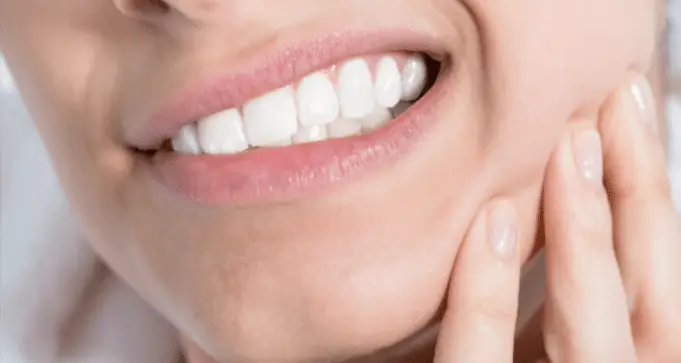Most individuals randomly grind or clench their teeth from time to time. When this teeth grinding becomes a habit, which is usually triggered by anxiety or stress, it is called bruxism.
Bruxism can lead to permanent damage to a person’s teeth and can trigger symptoms such as jaw pain, earaches, and headaches.
Bruxism typically happens during the night time and is called sleep bruxism. Bruxism that happens during the day, mostly subconsciously, is called awake bruxism.
Bruxism that takes place on its own without being triggered by any other medical condition is called primary bruxism. Secondary bruxism happens as a result of a different medical condition or medication.
What Causes Bruxism?
Many people deal with bruxism. More than 70 percent of reported cases of bruxism happens because of anxiety and stress. It usually happens subconsciously while a person is asleep.
However, other things can lead to bruxism, including any of the possible causes mentioned below.
Medications
Bruxism can happen as a side effect of a variety of drugs, most commonly antipsychotics, antidepressants, and psychotropic drugs.
The most popular type of medication that causes bruxism is SSRIs or selective serotonin reuptake inhibitors, a popular kind of antidepressant. Some of the common drugs in this group include sertraline (Zoloft) or paroxetine (Paxil).
Jaw Problems
If you are dealing with occlusal discrepancy, which means that your top and bottom teeth do not meet perfectly, there is a mode likely chance that you will suffer from bruxism. This can happen if you have crooked teeth or missing teeth.
Bruxism that is caused by jaw problems may come to a stop once your jaw issue is fixed.
Lifestyle Choices
Though not the most common reason, certain lifestyle choices can increase a person’s chances of dealing with bruxism, including smoking copious amounts of tobacco, a high intake of alcohol, and also taking recreational drugs.
How Is Bruxism Treated?
All possible treatment options for bruxism focuses on reducing any pain you may be feeling, prevent any form of damage to your teeth, and also reduce grinding and clenching as much as possible.
Medical Care
People suffering from teeth grinding must consult a dentist immediately. The dentist is most likely going to prescribe a splint or a mouthguard, which is a protective dental appliance, to protect your teeth from any further damage.
Many types of mouthguards available will fit your mouth in a variety of ways. Your dentist will select the kind that is most likely going to fit your mouth while it offers the most protection to your teeth.
The goal of a mouthguard is to serve as protection for your teeth and prevent clenching while having your jaw held in a more relaxed position.
Putting on the guard should not be painful for you. If you try one type of mouthguard and it doesn’t work, you can try another one until you find a comfortable one and correct your bruxism.
If you use a splint or guard and it doesn’t work, your dentist will recommend an orthodontic adjustment, like surgery or braces, to fix any misaligned teeth. However, these methods of treatment are very uncommon for bruxism. Thus, they may not resolve the problem.
Self-Treatment
If you would like to do some homework treatment, there are several ways you can tackle the side effects of teeth grinding without external help.
These methods include icing your jaw muscles for pain relief, avoiding all kinds of hard foods, and periodically relaxing your facial muscles during the day.
Stress management techniques, such as deep-breathing exercises and relaxation therapies, are beneficial as well.
Breaking the Habit
In many cases, bruxism can stop once you have made conscious decisions to break the habit. For example, you might break the teeth grinding habit by learning relaxation techniques and finding a way to hold your jaw in a more relaxed position.
Once daytime bruxism has successfully subsided, there will be some likely improvements in sleep bruxism as well.
What Are the Potential Complications of Untreated Bruxism?
Bruxism can cause some severe tooth pain and, if untreated for too long, can lead to eating disorders. Your jaw and teeth will become a lot more sensitive and experience more pain. This can lead to insomnia and depression in people with bruxism.
Bruxism, if left untreated, can also lead to headaches, ear pain, jaw pain, some abnormal wear on teeth, tooth mobility, fractures or broken teeth, and inflamed and receding gums.
What Is the Long-Term Outlook for Bruxism?
Bruxism can mostly be resolved, and there is a possibility to prevent further damage to your teeth by learning coping strategies for stress and anxiety.
These coping strategies can be done in several ways, including talk therapy, exercise, and breathing, as well as relaxation techniques.
Even after you have treated your bruxism, you must visit your dentist regularly. Regular visits will help them spot signs if your bruxism has returned long before you are physically aware of it.
We hope that you found this text helpful. Please, leave a comment below.












